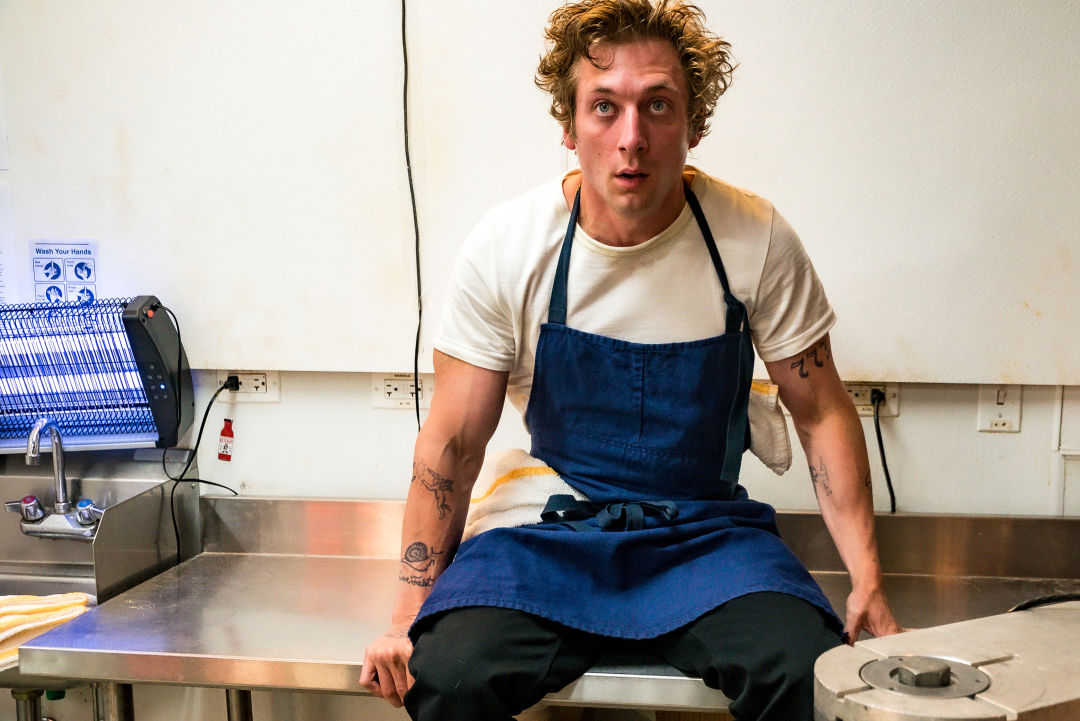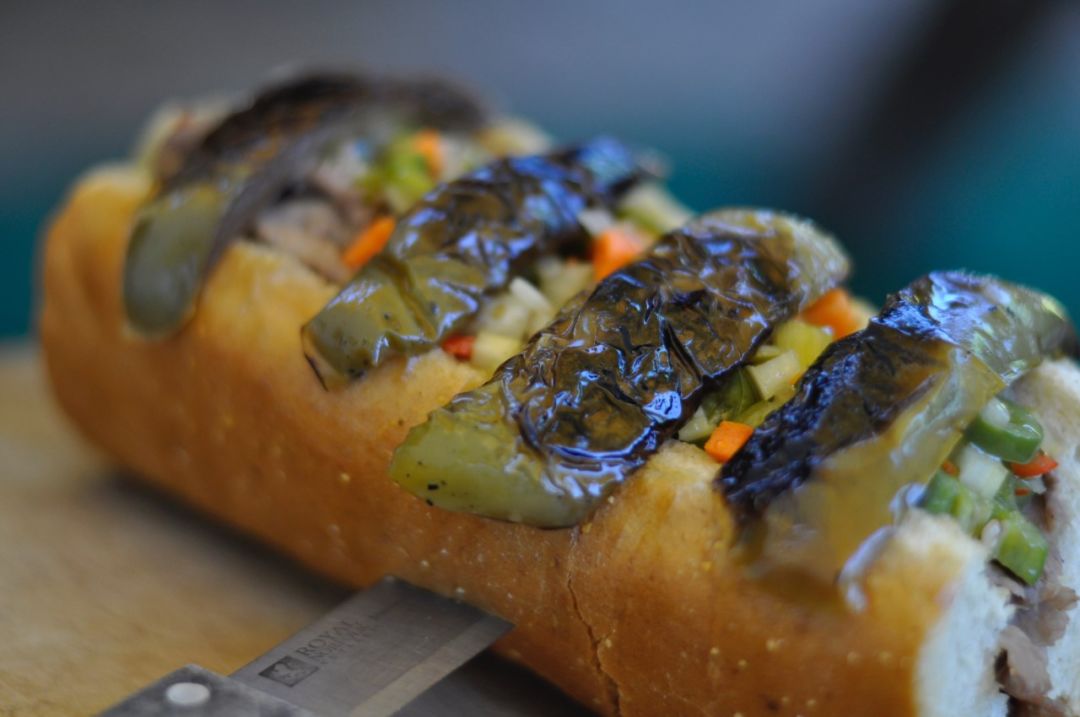What Do Portland Chefs Make of Hulu’s The Bear?

Jeremy Allen White plays a precocious chef who runs a sandwich shop in The Bear
Image: Courtesy FX Networks
Generally speaking, restaurants fall into two camps: fine dining and “normal restaurants.” There’s long been a hierarchical class divide between the rarefied air of Michelin-starred establishments, the type of place where your napkin gets folded for you when you go to the bathroom and bills easily reach four digits and the place you get lunch on the corner. It’s on the border of this divide that Hulu’s The Bear lives.
The show marks a turning point. In the wake of pandemic closures, cooks and servers moving to other industries, and former employees opening up about harassment, The Bear follows a Michelin-experienced chef as he inherits his family’s run-down sandwich shop in Chicago. The Bear shows what it looks like to hold onto the positives of the old days while doing the patient work of winnowing away the toxicity that has long pervaded the restaurant industry.
It’s rare that such a profound social dynamic makes it through a buzzy Hollywood show, but Twitter seems to have inspired enough newfound lust for a grown-up Jeremy Allen White (you’ll know him as one of William H. Macy’s many children, Lip, in the Showtime drama Shameless) to give everybody something to chew on. And an all-star cohort of chef consultants nailing the details keeps food-inclined viewers happy. White plays Carmine “Carmy” or “Bear” Berzatto, a precocious chef who, after his brother’s suicide, leaves the world of white tablecloths to take over his Chicago Italian beef sandwich shop.

Sammich's Italian beef sandwich.
Image: Summer Matsu
I've spent a fair amount of time in kitchens myself, and, after failing to find inaccuracies like the expected cringy amateur knife cuts or overdramatizations (like a masochistic Bradley Cooper tallying a million shucked oysters in a moleskin), I set out to take the temperature of other food people in Portland about The Bear.
The show has landed well across the board: people working in restaurants easily see themselves in the highwire, eight-episode drama. “When he grabbed all the ingredients to make giardiniera . . . I had chills,” says Melissa McMillan, a proud Chicagoan and owner of Sammich, house of Portland’s finest Italian beef sandwich. The way her thick Chicago accent hangs on jar din air gives me supreme confidence in her ability to suss out any off-kilter details. When the show came out a few weeks ago, McMillan’s staff billed it as a must-watch (“They’re just like us!”). She’s watched three times through and says The Bear not only represents her career, but also her hometown. Had they jumbled the details of either the sandwich or her home city, she would have never given her endorsement . . . “That’s like a tall, tall sign that you’re not from Chicago.”
Gabriel Pascuzzi, chef and owner of Mama Bird and former Top Chef contestant, has lived a life oddly parallel to White’s character—he went directly from working at three-Michelin-starred Noma to opening a sandwich restaurant (the now-closed Stacked). He says a friend called asking if the show was written about him. “It gave me anxiety,” he says of White’s performance. “He does a really good job of being a stressed-out chef owner.” Pascuzzi didn’t have quite as dramatic a road from "the world’s best restaurant” to rolling up hoagies, but he does have the Michelin pedigree to understand where Carmy is coming from. “It’s the little nuances they picked up on,” he says. The show’s tight-lipped, no nonsense chef vernacular brought Pascuzzi back to the fine dining kitchens he came up in. In one scene, the sous chef is trying to explain that an issue wasn’t her fault, and Carmy doesn’t care. He simply asks her to repeat, “Yes, Chef,” until she echoes him. “If you weren’t the one who did it, it doesn’t matter,” says Pascuzzi. “If you’re the one who was blamed, it’s your problem.”
As is the case whenever TV finds its way into your corner of the world, “buying it” can be tough. Big Night is the perfect food movie, but it’s not exactly up to date. The decades since have found Bradley Cooper in several chef-centric roles, none of which quite hit the nail on the head. Jon Favreau’s Chef launched a full-on food obsession for the actor—catapulting into a follow-up, behind-the-scenes cooking show. But Chef was more about family than restaurants. Attentions have turned to quasi-reality perspectives on food: documentary-style takes from the Bon Appetit test kitchen, plus a slew of programming from Vice, and the likes of YouTube sensation Binging With Babish.
With The Bear, food is back on the big screen. And with an informed perspective: Matty Matheson, celebrity chef, tattooed friend to everyone and recent Portlander visitor, plays Fak, the restaurant’s repair man. Matheson made his name in the world of internet reality food TV; Viceland shows Keep It Canada and Dead Set on Life launched the gregarious Canadian into a seat at the table of universally loved food personalities. Matheson is fun and approachable, but carries a restaurant-earned cooking knowledge that wins over chef and civilian fans alike.
Matheson is a producer on the show and consulted on the cooking scenes, while White and co-star Ayo Edibiri (you may know her as the voice of Missy on Netflix’s Big Mouth) spent time in Santa Monica French bistro Pasjoli training for their no-camera-doubles cooking scenes. McMillan can see the level of care that went into the show: “A chef finally took the time to show what it would actually be like in a kitchen,” she says. The show, she adds, has been extremely validating for her. “Sometimes you don't have equipment that works or have all the nicest shit. I'm a chef, restaurateur, plumber, electrician, fix it lady. That show was more about what I do for a living than a lot of this other shit that’s on TV.”
But the food is what really got McMillan excited. For her, it showed how, at the end of the day, all kitchens have a lot in common. And the gravy, what she calls “beef juice” (“In Chicago, you either have gravy or beef juice”) pulled especially hard on her heart strings. “Our beef juice is a cheffy chef chef version of fucking au jus, you know what I mean?” It’s clear that the revered sauce represents a leveling across the two restaurant industries for her. Watching White in his French Laundry-esque navy apron precisely chop vegetables and roast tomatoes for gravy melted away the divide.
An aspect that might throw the uninitiated, and a point of contention when Carmy’s fine dining ways seep into the lowbrow sandwich shop’s kitchen, is calling everyone Chef. It feels put on, right? Do people really do this? Yes. “So, we have a baseball team,” says McMillan of her kitchen. “I’m skip, Alexa is the head coach. We all call each other chef in [my] place too.”
“I definitely do that same move,” says Pascuzzi. He explains it's because he wants his cooks “to feel like a chef, think like a chef, and treat stuff like a chef.”
While a recent GQ profile paints White as the ultimate Brooklyn hot guy, straddling a fixie with his pant leg tucked into his sock and sporting a tattered Mets cap, sparse black and gray tattoos, and a flourish of low-profile jewelry, both McMillan and Pascuzzi hope the show’s acute sense of kitchen life can speak to the larger narrative surrounding restaurants. “Because,” McMillan says, historically it’s been “a few big-time chefs that decide what being a chef looks like. And it’s really not like that. This is what's real!”
“What I think they’re showing is a transition in the industry as a whole,” says Pascuzzi, referring to the flashbacks of working under a toxic head chef that haunted Carmy’s thoughts. “Yelling at people and treating people poorly doesn’t fly anymore. I think [Carmy] was learning to be humanized.”
Of course, there must be some crime; danger always makes good TV. “Yeah, it’s Chicago, dawg!” McMillan roars when I ask if that’s really a thing—mob involvement. "I would just say people from Chicago know how to get stuff done.”




